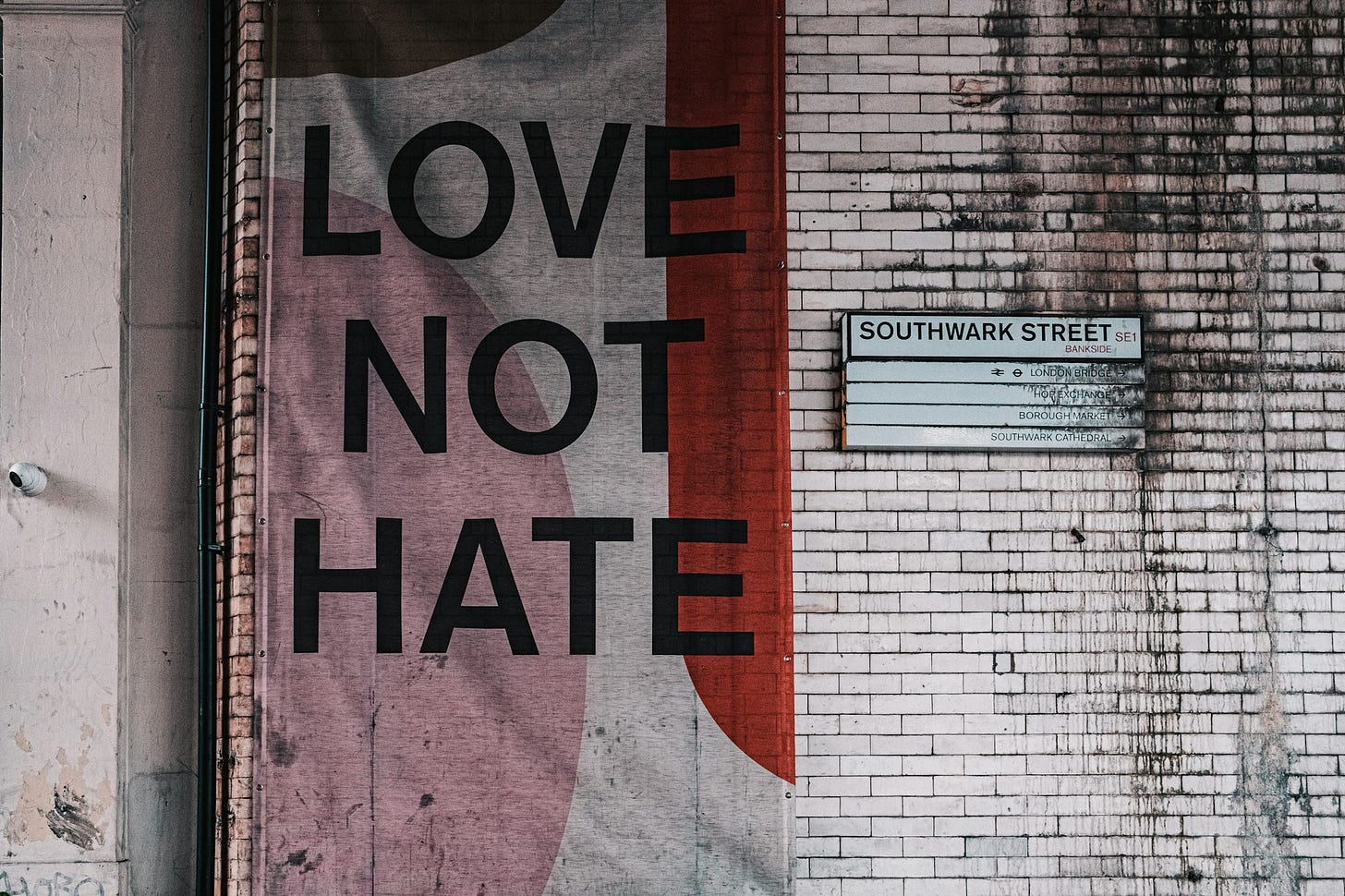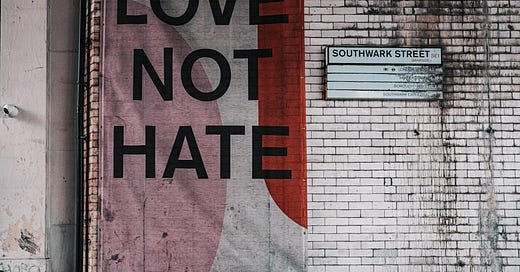
The words prejudice and discrimination crop up a lot in political discourse today.
We use these terms to describe certain attitudes and behaviors. Namely, attitudes of dislike, hostility, or fear on the basis of the demographic or group a person belongs to.
The general term for this kind of hostility is ‘bigotry’. This is an umbrella term, encompassing many different attitudes and beliefs.
Bigotry is defined as obstinate or unreasonable attachment to a belief, opinion, or faction, in particular prejudice against a person or people on the basis of their membership of a particular group.
In looking at various forms of bigotry, we see prejudice and discrimination crop up in their very definitions. Here are just a few common examples:
Racism- Prejudice, discrimination, or antagonism by an individual, community, or institution against a person or people on the basis of their membership in a particular racial or ethnic group, typically one that is a minority or marginalized.
Sexism- Prejudice, stereotyping, or discrimination, typically against women, on the basis of sex.
Homophobia- Dislike of or prejudice against gay people.
Transphobia- Dislike of or strong prejudice against transgender people.
Ableism- Discrimination in favor of able-bodied people. Social prejudice against people with disabilities.
Ageism- Prejudice or discrimination on the grounds of a person's age, either youth or senility.
Islamophobia- Dislike of or prejudice against Islam or Muslims, especially as a political force.
Anti-Semitism- Hostility to or prejudice against Jewish people.
Any time we deign to create a division between people, we create the possibility of bigotry. This divide can be political, generational, racial, really anything you can describe yourself or someone else with.
In-Group and Out-Group Mentality
While humans tend to be cooperative creatures, as all social primates are, we also have a habit of splitting ourselves up. We often identify with one set of people, which we can call our ‘in-group’, and we place ourselves apart from the people who stand outside of it- the ‘out-group’.
This is not necessarily hostile, and it’s rarely done out of malice on the small scale.
We see this kind of behavior all over the place. The group of friends you hang out with in school, the coworkers you like and the coworkers you never go out to lunch with. It’s natural for us to gravitate towards people that we relate to and have a lot in common with!
But when it does become hostile, and conflicts arise, that’s when this tendency becomes dicey.
For example, being part of a religious group is not bigotry. Plenty of religious organizations do wonderful charitable work in their communities, and even network across denominations and faiths to do good.
Cooperation across groups is great!
But if you’re part of a group that’s degrading, sneering at or discriminating against people who don’t follow the same religion that you do, and thinks less of other faiths…Then you’re engaging in bigotry against those other people.
The Other
Bigotry is often expressed by a process called ‘othering’. This is a form of dehumanization that is carried out against a group that is considered undesirable in some way.
Usually, the ‘other’ is a minority. It could be a racial, sexual, gender, religious or national identity. Othering uses things like propaganda, public slander, and misinformation to increase suspicion towards the people identified as members of that group.
The creation of stereotypes are a very common and effective way to other people. The use of slurs and dehumanizing language is another- think of the ‘N’ word, or referring to immigrants as an ‘infestation’, bringing to mind the image of insects or rodents.
Did You Know? Anti-Irish sentiment was pretty bad during the early part of the 20th century. As Irish immigrants made their way into the new world, people reacted to them with a mixture of suspicion and distrust. Irish people were stereotyped as lazy thieves, drunken louts and angry violent people.
When an Irish cook was discovered to be the first asymptomatic carrier of typhoid identified in the States, she reacted to the accusations with fear, even threatening doctors with a carving fork if they refused to leave her alone. She assumed she was being targeted and scapegoated due to being Irish, since it was common for Irish people to be blamed for bringing illness. Her name was Mary Mallon.
She is still referred to as ‘Typhoid Mary’ to this day.
The objective of othering is to increase the division between people. As social creatures, we are naturally empathetic and we tend towards cooperation and mutual aid. But when a group becomes othered, we think of them as less human. Less deserving of help.
Maybe even something scary, something to be avoided.
Choose Empathy Over Discrimination
The important thing to keep in mind is that we are all human beings.
Every single one of us is an individual person, with individual hopes, dreams, experiences and beliefs. We all have our own stories.
Applying a stereotype across an entire group of people is never okay.
Rather than making snap judgements when you meet people, get to know them. Make your judgements based on their actions, not on how they look or where they’re from. Get to know the person.
This does not apply to people wearing symbols of hatred.
If the person is wearing a Nazi Swastika, it’s okay not to hear them out. They’re making the choice to display that insignia. That’s an action. They are broadcasting their opinions loud and clear, no discussion needed.
And before anybody asks, no. The Pride flag is not comparable to symbols of hate groups. One stands for acceptance, the other stands for genocide.
If you need to ask which is which, I don’t know what to tell you.
Many people experience bigotry, prejudice and othering every day. If you’re one of them, I’m sorry. You deserve better.
If you’re willing to share, feel free to post an incidence of othering that you’ve experienced, or witnessed, in the comments section. Read each other’s stories, and discuss.
Let’s choose empathy today.


